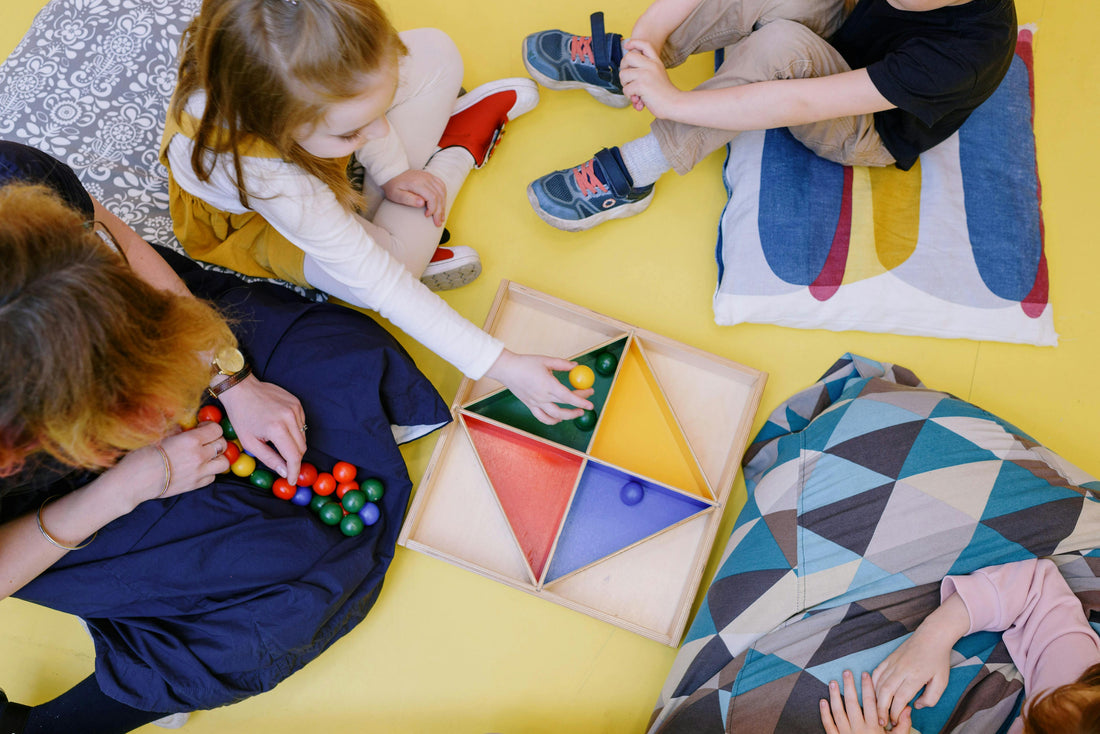In the realm of early childhood education, the Montessori method stands out for its emphasis on self-directed learning and the holistic development of the child. One of the key components of this approach is open-ended play, which is integral to fostering creativity, problem-solving skills, and exploration. This article delves into the concept of open-ended play and how Montessori toys are designed to facilitate these essential aspects of a child's growth.
For a wide range of Montessori toys and materials that support open-ended play, visit Montessori Australia.

Understanding Open-Ended Play
Open-ended play refers to activities that do not have a predetermined outcome or specific instructions. It allows children to use their imagination and creativity to explore and interact with the world around them. Unlike structured play, which follows set rules and goals, open-ended play encourages children to think outside the box, experiment with different scenarios, and develop their own ideas.
Benefits of Open-Ended Play
- Creativity and Imagination: Open-ended play encourages children to use their creativity and imagination. Without specific guidelines, they are free to invent stories, build structures, and create art in unique ways.
- Problem-Solving Skills: Engaging in open-ended play helps children develop critical thinking and problem-solving skills. They learn to navigate challenges, make decisions, and find solutions independently.
- Emotional Expression: Through open-ended play, children can express their emotions and feelings in a safe and constructive manner. This type of play often serves as an outlet for processing experiences and emotions.
- Social Skills: When children engage in open-ended play with peers, they learn essential social skills such as cooperation, negotiation, and empathy. They practice taking turns, sharing, and resolving conflicts.
- Cognitive Development: Open-ended play stimulates cognitive development by encouraging children to explore, experiment, and discover. It enhances their ability to think abstractly and develop a deeper understanding of concepts.

Montessori Toys and Open-Ended Play
Montessori toys are specifically designed to promote open-ended play. These toys are often made from natural materials, such as wood, and feature simple, minimalist designs. They are versatile and can be used in a variety of ways, allowing children to explore and learn at their own pace.
Key Characteristics of Montessori Toys
- Simplicity: Montessori toys are typically simple in design, which allows children to focus on their own creativity and imagination rather than being distracted by flashy features.
- Natural Materials: Using natural materials like wood, metal, and fabric, Montessori toys provide a tactile and sensory experience that is crucial for young children's development.
- Multi-Functional: Many Montessori toys can be used in multiple ways, promoting open-ended play. For example, a set of wooden blocks can be used to build structures, create patterns, or even as props in imaginative play.
- Real-Life Skills: Some Montessori toys are designed to mimic real-life objects and tools, helping children develop practical life skills through play.
- Self-Correcting: Montessori toys often have a self-correcting aspect, allowing children to learn from their mistakes and find solutions independently.

Examples of Montessori Toys for Open-Ended Play
- Wooden Building Blocks: These classic toys can be used to build towers, castles, and other structures, fostering creativity and spatial awareness.
- Stacking Toys: Stacking rings or cups encourage fine motor skills and problem-solving as children figure out how to balance and order the pieces.
- Art Supplies: Providing children with materials like clay, paint, and paper allows them to express themselves creatively and develop their artistic abilities.
- Pretend Play Sets: Items like play kitchens, dollhouses, and toolsets enable children to engage in imaginative play and explore different roles and scenarios.
- Nature-Inspired Toys: Toys that incorporate elements of nature, such as seashells, stones, and leaves, encourage children to explore the natural world and develop a connection with their environment.

Setting Up an Open-Ended Play Environment
Creating an environment that supports open-ended play is essential for maximizing its benefits. Here are some tips for setting up a Montessori-inspired play area at home:
1. Organize the Space
Ensure that the play area is organized and clutter-free. Use low shelves to display toys and materials in an accessible manner. Rotate toys regularly to keep the environment fresh and engaging.
2. Provide a Variety of Materials
Offer a diverse selection of toys and materials that cater to different interests and developmental stages. Include items that promote sensory exploration, creativity, and problem-solving.
3. Create Defined Areas
Designate specific areas for different types of play, such as a reading nook, an art station, and a building area. This helps children understand the purpose of each space and encourages focused play.
4. Encourage Independence
Arrange the play area in a way that allows children to access toys and materials independently. This fosters a sense of autonomy and empowers them to make their own choices.
5. Incorporate Nature
Incorporate natural elements into the play area, such as plants, rocks, and natural light. This creates a calming atmosphere and encourages children to explore the natural world.
Open-ended play is a fundamental aspect of Montessori education, promoting creativity, problem-solving, and exploration. By providing children with the right toys and environment, we can support their holistic development and foster a lifelong love of learning. Montessori toys, with their simplicity, natural materials, and versatility, are ideal for encouraging open-ended play.
For a wide range of high-quality Montessori toys and materials that support open-ended play, visit Montessori Australia. Our carefully curated collection ensures that you find the perfect items to support your child's growth and development in a Montessori-inspired environment.
By embracing open-ended play, we can help children develop the skills and confidence they need to navigate the world around them, fostering a generation of creative, independent, and curious learners.


